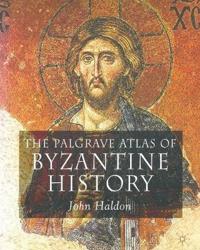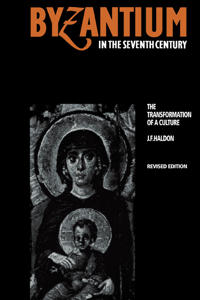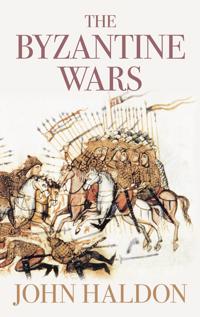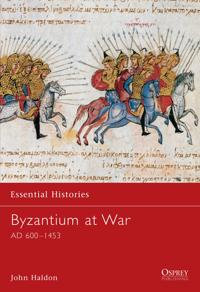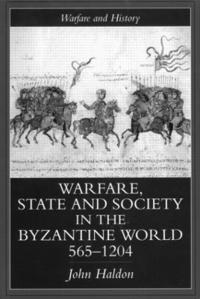The Palgrave Atlas of Byzantine History (Häftad)
avJohn F. Haldon
ISBN: 9780230243644 - UTGIVEN: 201005The dominant Mediterranean power in the fifth and sixth centuries, by the time of its demise at the hands of the Ottomans in 1453 the Byzantine empire was a shadow of its former self restricted essentially to the city of Constantinople, modern Istanbul. Surrounded by foes who posed a constant threat[...]
Byzantium in the Seventh Century (Häftad)
avJohn F. Haldon
ISBN: 9780521319171 - UTGIVEN: 1997-10This book presents the first analytical account in English of the major developments within Byzantine culture, society and the state in the crucial formative period from c. 610 to 717. Since its original publication in 1990, the text has been revised throughout to take account of the latest research[...]
Byzantium In The Iconoclast Era, C. 680-850 (Inbunden)
avJohn F. Haldon, Leslie Brubaker
ISBN: 9780521430937 - UTGIVEN: 2011-01-06This book provides the first comprehensive treatment of the role of Iconoclasm in Byzantium c. 700-850.[...]
The Byzantine Wars (Storpocket)
avJohn F. Haldon
ISBN: 9780752445656 - UTGIVEN: 200807This is a history of the wars between Byzantium and its numerous foes - the Goths, Arabs, Slavs, Crusaders and Ottoman Turks.By the middle of the sixth century the Byzantine emperor ruled a mighty empire that straddled Europe, Asia and North Africa. Within 100 years, this powerful empire had been cu[...]
Byzantine Warfare (Inbunden)
avJohn F. Haldon
ISBN: 9780754624844 - UTGIVEN: 2007-03Warfare was an integral part of the operations of the medieval eastern Roman, or Byzantine, empire, both in its organisation, as well as in social thinking and political ideology. This volume presents a selection of articles dealing with key aspects of Byzantine attitudes to war and violence, with m[...]
Byzantium at War (Häftad)
avJohn F. Haldon
ISBN: 9781841763606 - UTGIVEN: 200209Tells the story of the Byzantium Empire which survived for eight hundred years and ended when its last emperor, Constantine XII, died fighting in 1453.[...]
Warfare, State and Society in the Byzantine World (Häftad)
avJohn F. Haldon
ISBN: 9781857284959 - UTGIVEN: 199906This work offers a comprehensive study of warfare and the Byzantine army in the social context. It deals with Byzantine attitudes to warfare, the effects of war on society as a whole both culturally and physically, as well as relationships between soldiers, leaders and society. It also examines the [...]

